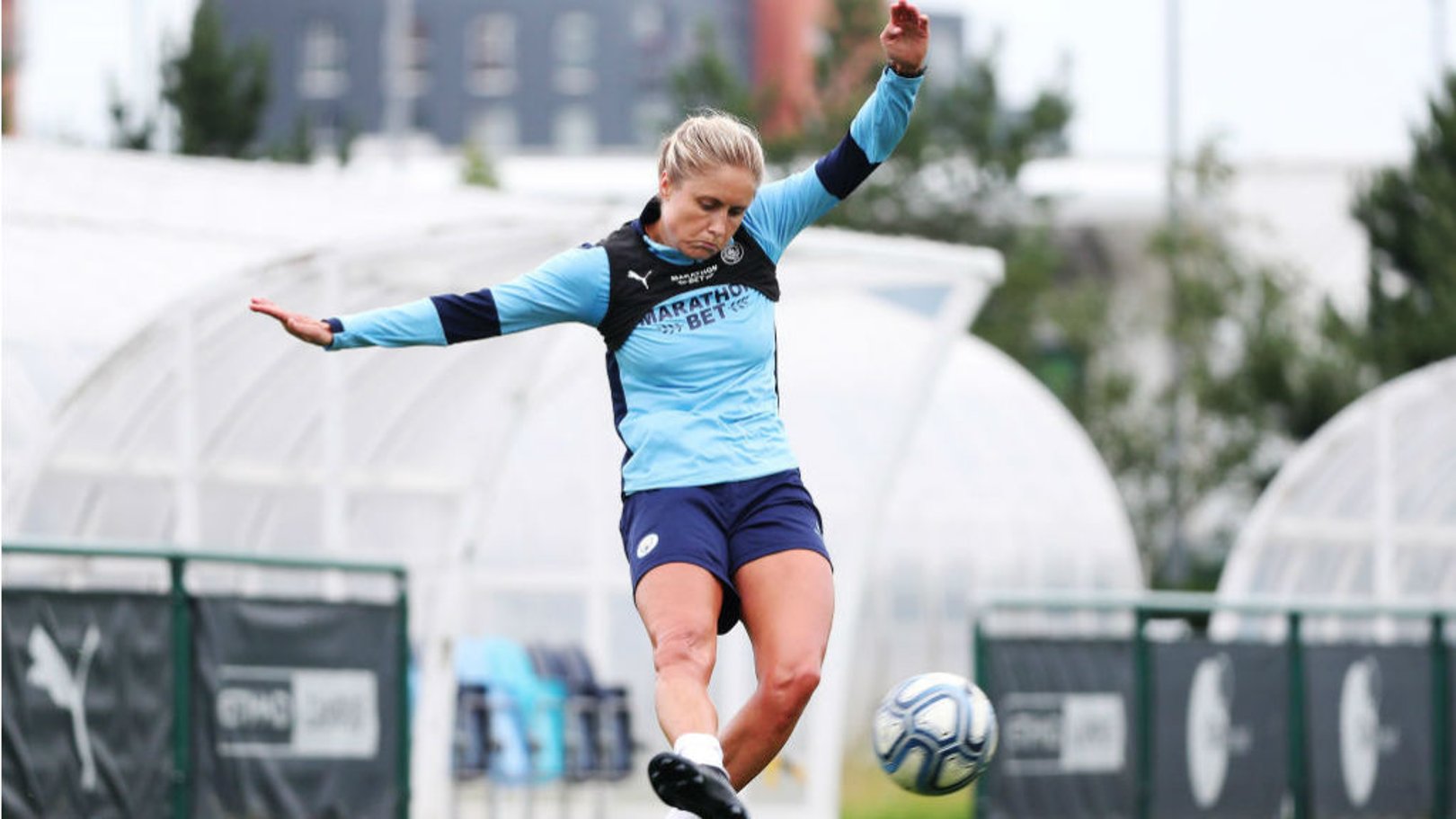Houghton took part in a special video call with the Duke of Cambridge, who is president of the Football Association, along with former England captain David Beckham, Aston Villa defender Tyrone Mings, Everton boss Carlo Ancelotti and Crystal Palace’s Andros Townsend.
The event was to mark the game coming together to sign up to the Mentally Healthy Football declaration, a campaign spearheaded by the Duke, and which is committed to helping make mental health and well-being a key priority at all levels of the sport.
Houghton has earned widespread praise and acclaim for her inspirational leadership for both club and country.
DONATE NOW | Cityzens Giving for Recovery
But, as part of a wide-ranging conversation, Houghton spoke to the Duke about how her own mental well-being had been affected after she was first afforded the honour of being named captain of the Lionesses and how talking about the issue proved crucial.
“I’ve got the honour of captaining Manchester City but also England which is the greatest honour you could have,” Houghton said.
“It was an interesting pathway in terms of how I got the captaincy. I think in terms of a mental point of view I tried to be someone that I wasn’t.
“I tried to be everybody’s mate when I first got given the captaincy.
"That's when I had to speak to the psychologist."
— Lionesses (@Lionesses) July 27, 2020
Watch when @stephhoughton2 joined The Duke of Cambridge to talk openly about mental health and #HeadsUp. pic.twitter.com/e9qZ0hN1tm
“I had a lot more experienced players above me… the likes of Fara Williams and Casey Stoney who had every right to be captain but I had the honour of having the armband and those first six months it really affected the way I played.
“I tried to use all my energy in trying to be everybody’s best mate. I tried to make sure everyone was OK whereas, actually, I was the one that was suffering in terms of how my form dipped.
“I wasn’t being the player that I was and that’s when I had to speak to the (sports) psychologist.
CITY+ | Sign up for exclusive content
“He pulled me aside and said we need to go back to the basics of how you have been given the captaincy and what type of leader do you want to be?
“A lot of the captains I look up to really led by example on the pitch.
“It’s about controlling what you can control and at that time the only thing I could control was how I played and how I was around the team and sticking true to my beliefs of how football should be and how a captain should be.
“As a leader you try and be this person that is always strong and positive, but the reality is that sometimes you are going to have a bit of a bad day.
“I think the way that you grow as a leader and the way that the environment is one where people can open up is if you show that little bit of vulnerability. Maybe one day you are having a bad day or not playing as well as you can and its OK to show that.”
The Duke of Cambridge also asked Houghton about how Clubs and players can best be helped in terms of dealing with the scrutiny and criticism that can sometimes come through the prism of social media.
By way of example, Houghton talked about how she dealt with the aftermath of last summer’s World Cup semi-final against the United States where she had a late second half penalty saved.
EL MAGO: DAVID SILVA - A DECADE OF MAGIC
“I think it’s important we have that balance. In football you have these unbelievable highs, but you have these lows as well and you can get that feeling off social media as well,” Houghton pointed out.
“If you have an amazing game there are so many tweets and Instagram (messages) saying ‘well done.’
“But, for example, (after) I missed a penalty in the World Cup semi-final, I didn’t look on my phone for four or five days because I knew exactly what was coming in terms of the messages.
“It wasn’t intentional that I missed the penalty - but at the same time people make you feel like that.
“So I think it’s important we have that kind of awareness and to have that conversation within teams especially with the younger generation coming up to go ‘OK, social media is great tool for a lot of things such as to help promote campaigns and build peoples profiles.
“But, at the same time, it can be quite hurtful. And sometimes you don’t realise that people do read a tweet or an Instagram (post) and it stays with them a long time.”









